Third-year CSU vet student Meaghan O'Neill examines a cat named Anfinsa.
Dr. Alex Gomes, a CSU alumnus, with two local street dogs.
Local vet tech Georgiana Mirica outside the vet tent.
An effort by a Colorado State University-trained veterinarian to provide care for refugees’ pets at the Ukrainian border has expanded to include current CSU veterinary students as well as other alumni.
CSU alumnus Dr. Jon Geller founded the Street Dog Coalition in 2015 to provide free medical care to the pets of people experiencing homelessness, and it’s now operating in more than 50 cities across the country, including Fort Collins.
Geller traveled to the Romanian-Ukrainian border in March as thousands of refugees were fleeing from the Russian attacks on Ukraine. At a station on the Romanian side of a ferry crossing on the Danube River, he provided vaccinations, microchips and a European Union “pet passport” that the Ukrainians need to enter other countries with their animals.
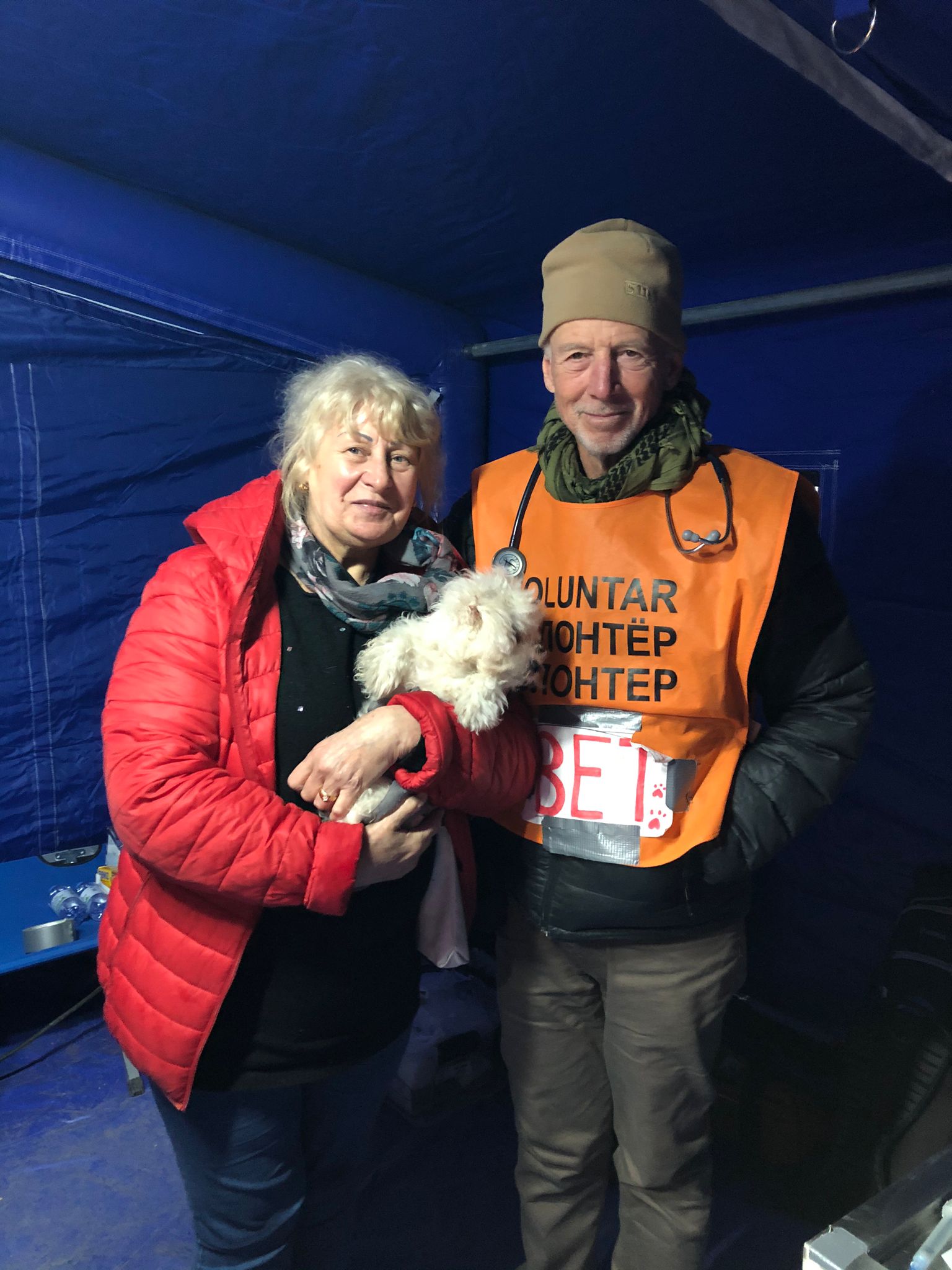
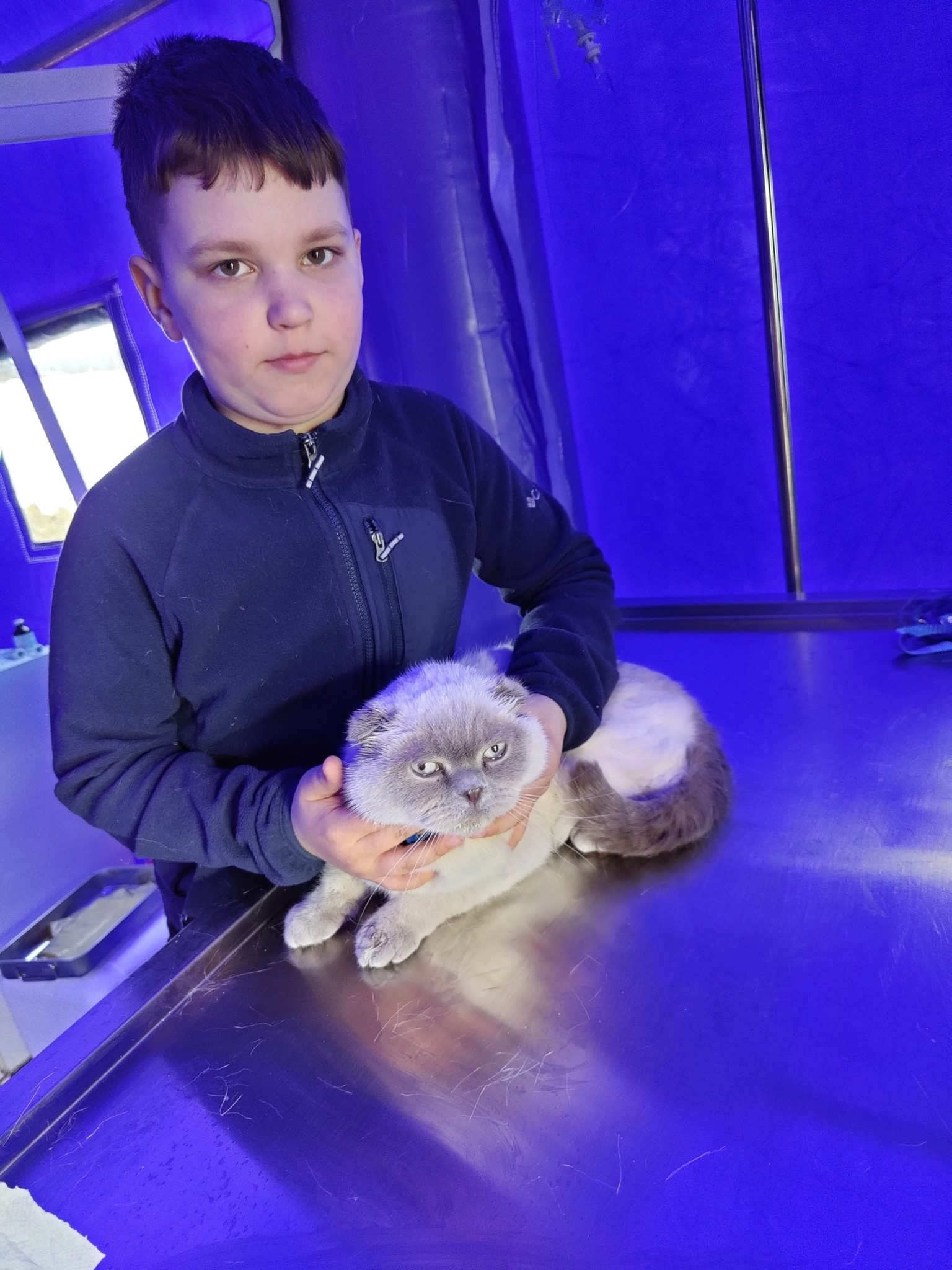
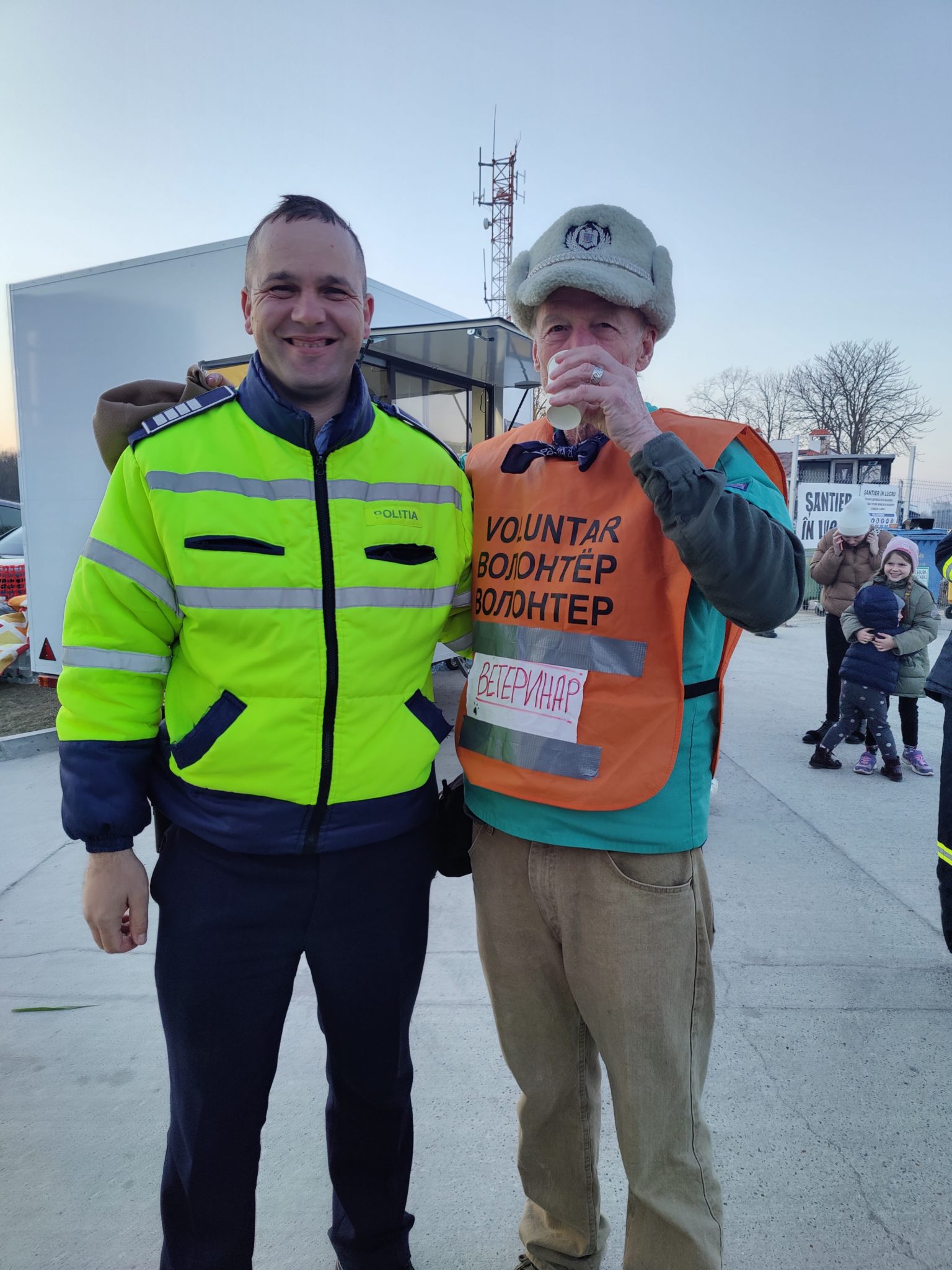
Dr. Jon Geller, pictured at right in two of the photos above, is the CSU alumnus who spearheaded the effort to provide care to Ukrainian refugees’ pets. He provided these images of some of the people he met at the border.
First impressions
Third-year veterinary student Meaghan O’Neill, who has been involved with the Street Dog Coalition for about a year, heard about Geller’s trip and was the first CSU student to join the effort. From May 16-26, she helped staff the border tent with vet students from other countries.
“At first I was awestruck by how well-run the operation was,” O’Neill said. “But my biggest takeaway from interacting with these Ukrainian refugees was how put together they were and how well they were taking care of their pets. Even though they didn’t know where they were going next, it was clear that they treated their animals well.”
She said that one Ukrainian woman with two Yorkies even rescued a third on her way out of the country. Geller added that another refugee who worked on a Russian fishing boat had all of his Russian credit cards frozen, so volunteers took up a collection to provide him with some cash.
O’Neill, who is from North Kingstown, Rhode Island, acknowledged that her parents were initially worried about her trip until she assured them that she would be in Romania at an established border crossing, staying at a boarding house affiliated with a local church.
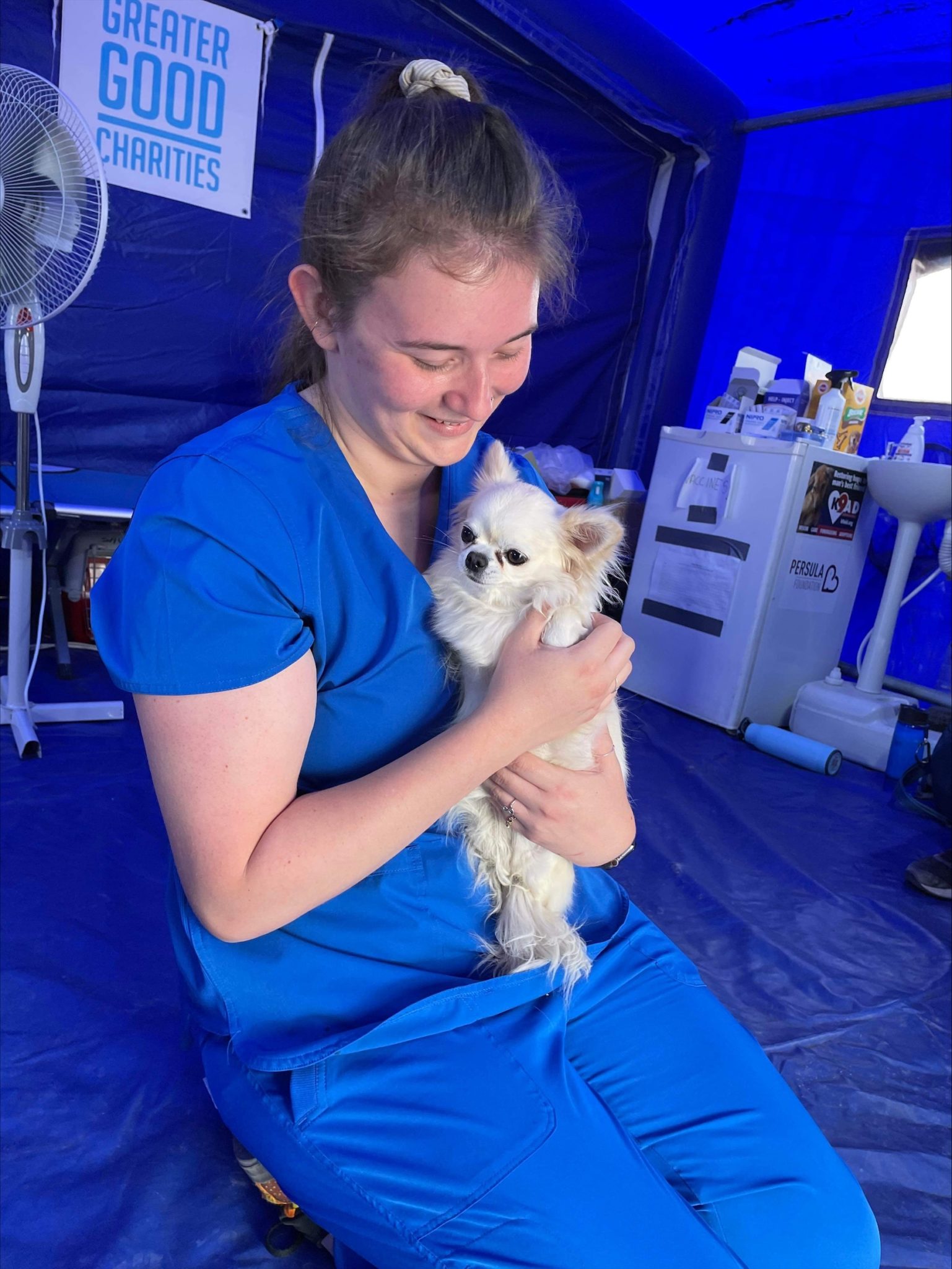
O’Neill holding a chihuahua named Sweet Kiss.
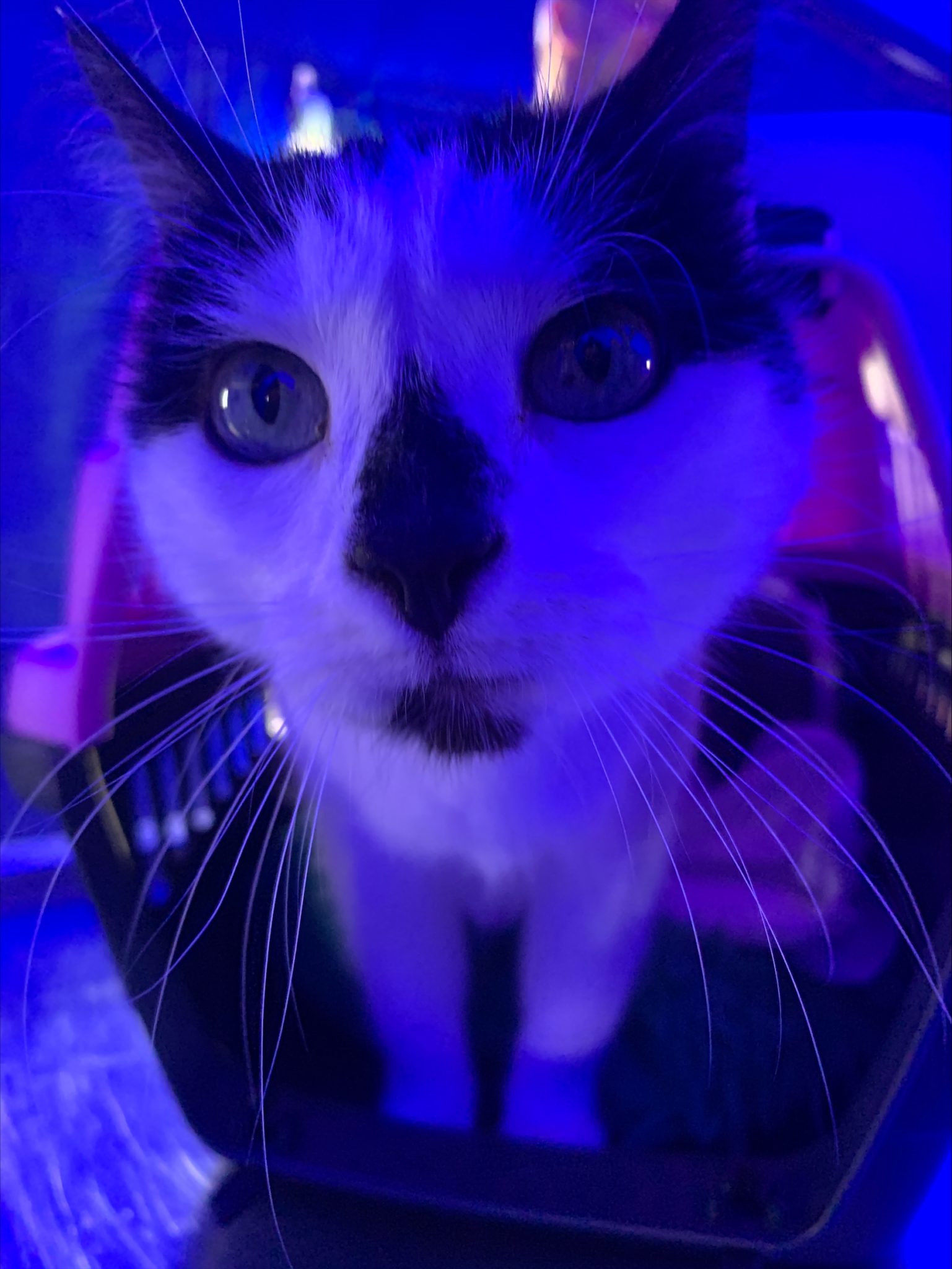
A patient named Simba.

A ferry crossing the Danube River. Photo by Pavel Sfera
Other services
She said that in addition to rabies vaccinations, microchips and pet passports, she provided some pets with distemper-parvo vaccines, deworming and flea/tick prevention. The most severe condition O’Neill saw was when a French bulldog got heat stroke and had to be cooled down with ice bags, wet towels, a fan and anti-fever medication procured from a nearby pharmacy.
She said she used Google Translate on her phone to communicate with both Ukrainians and Romanians, but she also had a “cheat sheet” that translated the most common questions and answers between English and Ukrainian. O’Neill added that some Ukrainians and Romanians also knew some English, especially young people. She said most refugees were women and children, since men aged 18-50 were not permitted to leave the country.
Geller and O’Neill said they didn’t see any active signs of war, although when the nearest city, Odessa, was put on lockdown when it was being shelled by the Russians, there would be a lull in refugee traffic, followed by a rush when the lockdown was lifted.
A second-year vet student, Jen Drummond, and recent CSU graduate Kristi Quintero staffed the station from May 26 to June 8. CSU alumni Alex Gomes, Kyrie Ivanovich and Frank Frucci have also traveled to the border to provide pet care.
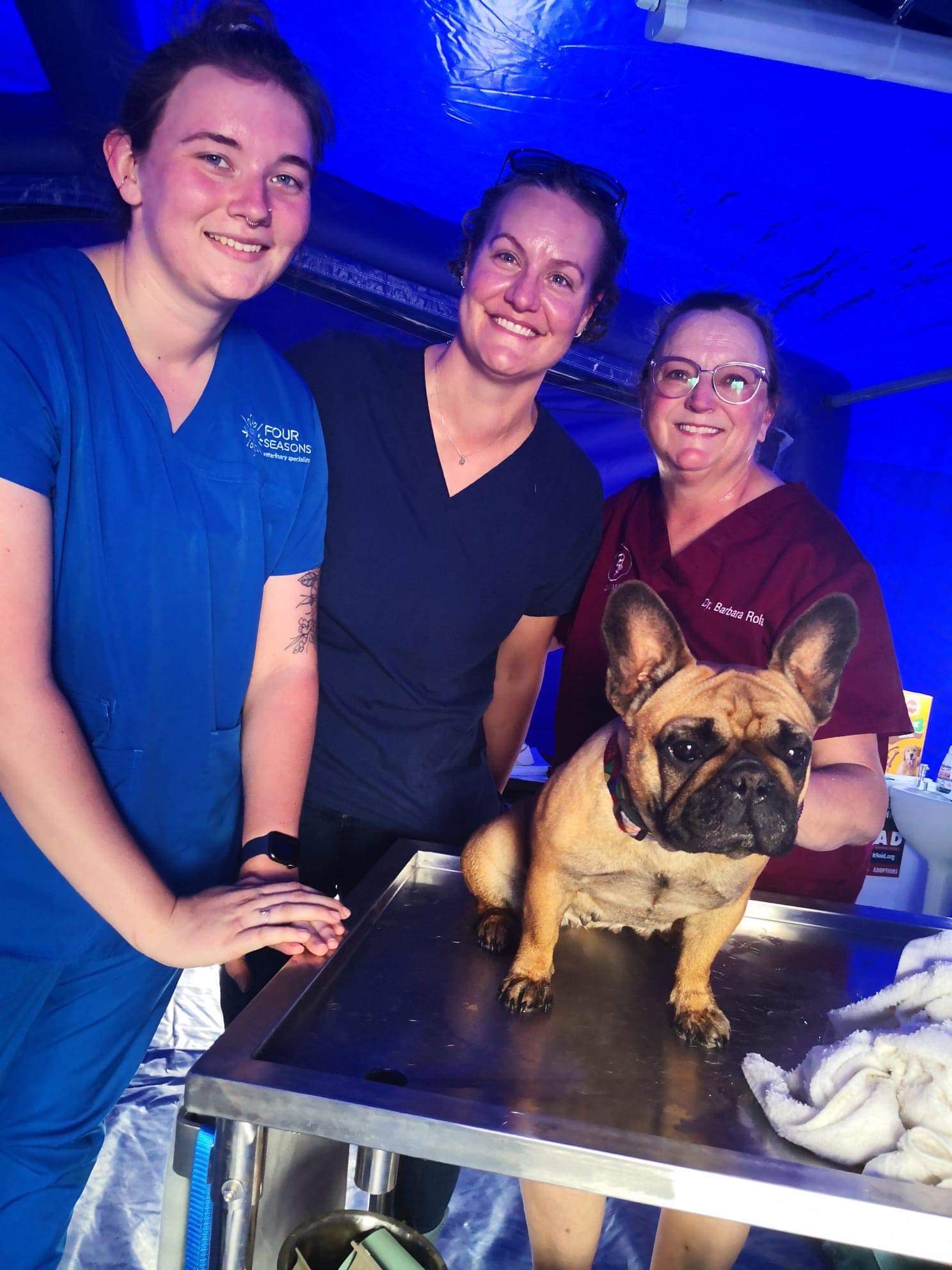
O’Neill, left, with an emergency room tech, a volunteer doctor and Candy, the French bulldog that was treated for heat stroke.
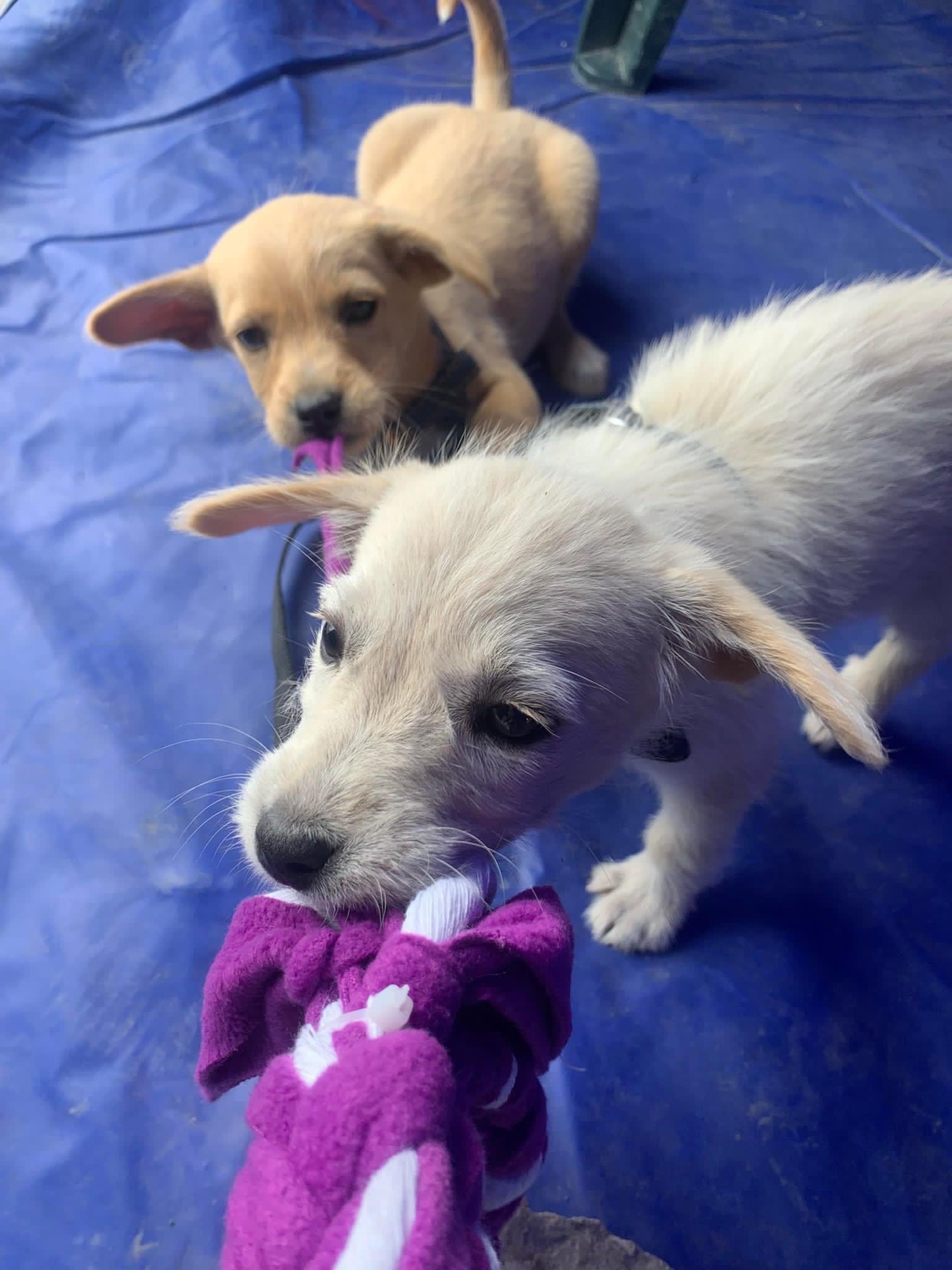
After being abandoned in front of the vet tent overnight, these two puppies were treated for parasites before being sent to a local rescue.
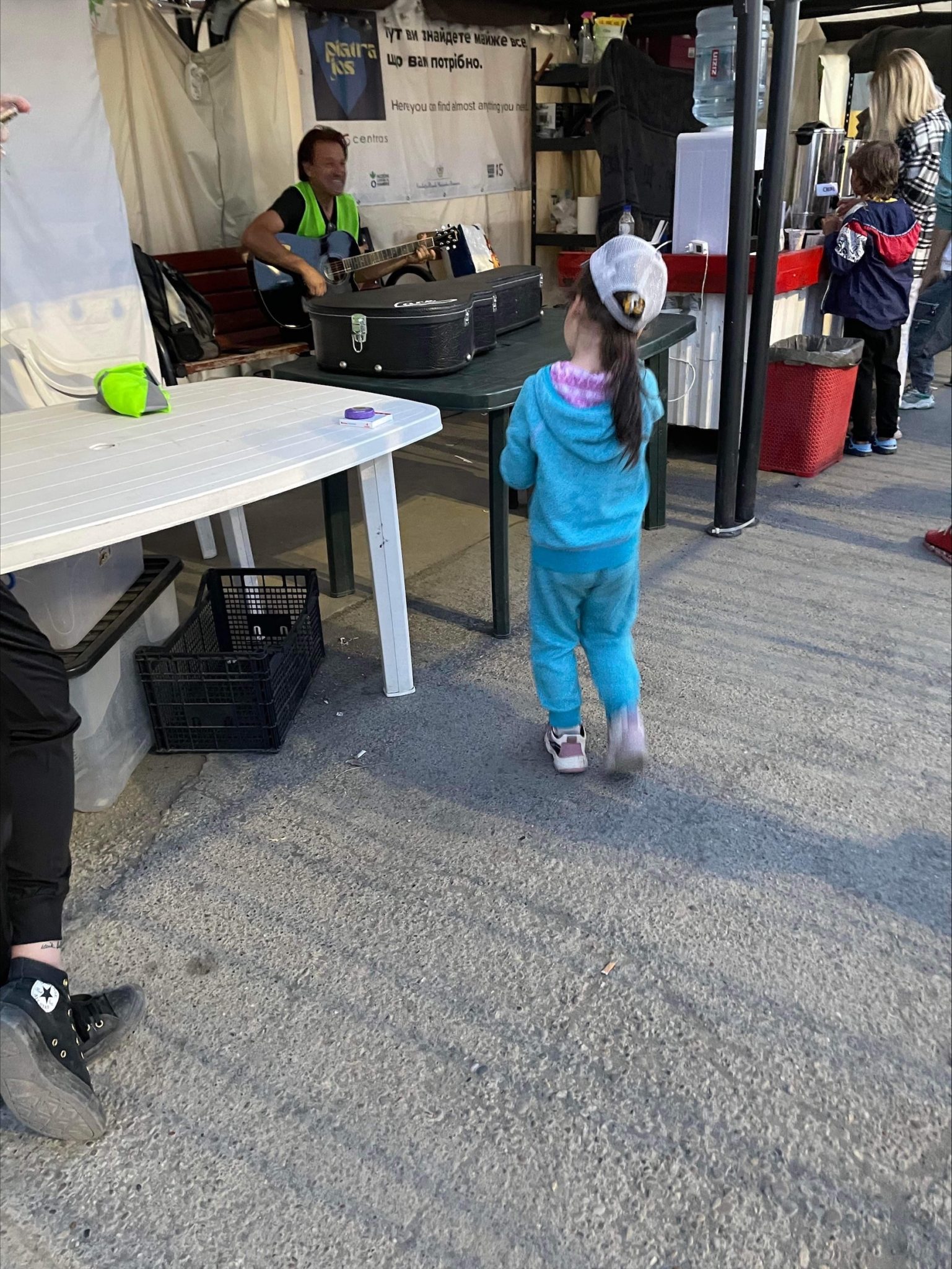
Border volunteer Pavel Sfera plays guitar and sings for the other volunteers. The mother of the Ukrainian girl in the foreground had to physically carry her away because she wouldn’t stop dancing.
Drawing parallels
Geller said the effort is consistent with the work that the Street Dog Coalition does in the U.S.
“These refugees were literally homeless and transient, and a lot of the folks we deal with here are on the move too,” he explained. “Although both groups are homeless, transient and under stress, the difference is the Ukrainians are not stigmatized, lacking in health care or necessarily indigent. The other common denominator between the two is that no money changes hands – the only time it changes hands is if we provide them with some funds.”
O’Neill, who plans to do a surgical residency after graduating, added: “I fell in love with street medicine when I got involved with the Street Dog Coalition. It’s all about doing what you can for a person and their pet. The whole goal is to keep people with their animals, because they play such an important role in their lives. I would love to run a Street Dog chapter wherever I end up.”
Geller and O’Neill said that the main need at the border now is supplies; donations can be made at the Street Dog Coalition website.
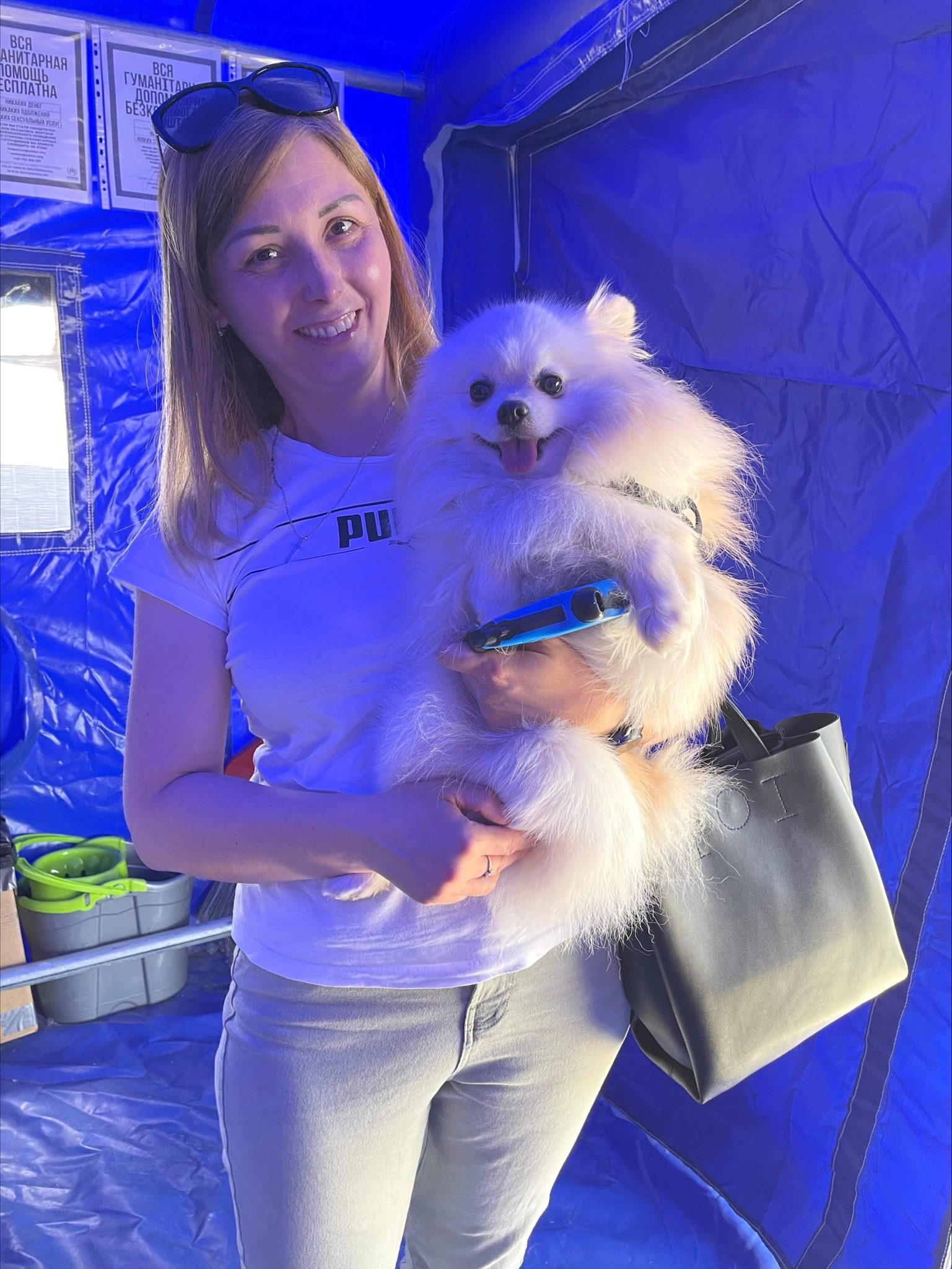
This Pomeranian’s name translates to “Crumb” in English.
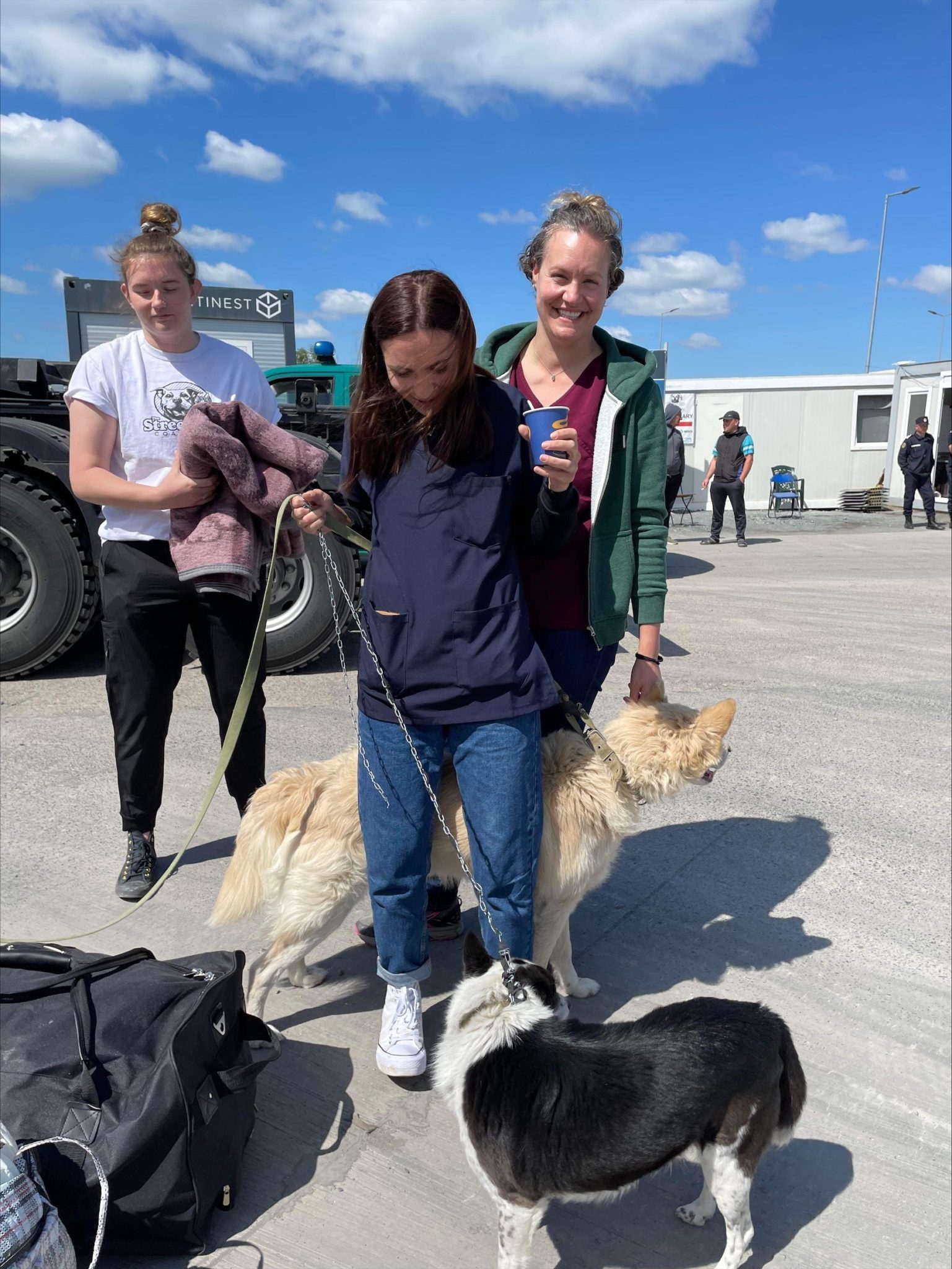
O’Neill, ER tech Michelle Pelser and Romanian vet tech Catalina Cosofret help a Ukrainian woman with her bags and her two dogs, Timor and Mishka.